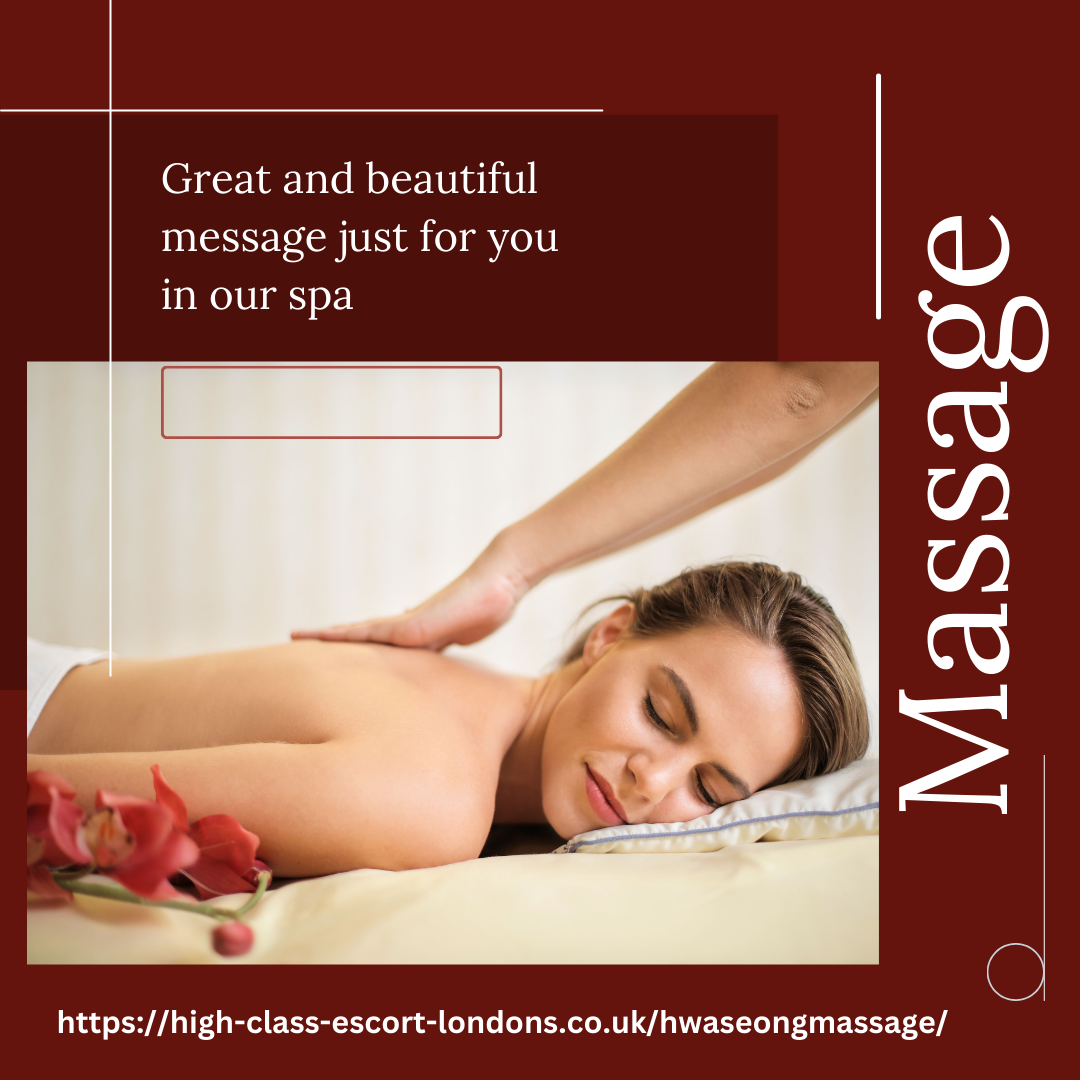
Introduction to Business Travel and Self-Care
In recent years, the pace of business travel has escalated remarkably, with professionals venturing forth to attend meetings, conferences, and other engagements worldwide. While these trips can serve as invaluable opportunities for growth and networking, they often precipitate a range of stressors and fatigue. Protracted hours spent in transit, varying time zones, and the rigors of unfamiliar environments can place considerable strain on the body and mind.
As the demands of working life intensify, the importance of conscious self-care practices cannot be overstated. Engaging in measures that promote physical and mental well-being while traveling for work can mitigate the adverse effects associated with frequent business trips. With increasing acknowledgment of the necessity for self-care among professionals, incorporating practices like massage therapy into travel routines emerges as a pivotal strategy for alleviating stress and replenishing energy levels.
화성출장마사지 Massage therapy stands out as a powerful tool that one can leverage to counter the negative impacts of travel. Beyond its well-documented benefits for relaxation and muscle tension relief, massage actively fosters a sense of connection and mindfulness—elements often absent during busy work schedules. As travelers navigate their commitments, it becomes crucial to prioritize well-being during these excursions. By integrating massage into their itineraries, individuals can enhance both their physical comfort and mental clarity, ultimately leading to a more productive and enjoyable travel experience.Furthermore, the practice of self-care can evolve from a luxury to a necessity in high-pressure business environments. By acknowledging the role of massage in supporting overall well-being during travel, professionals can begin to foster healthier habits that yield long-term benefits for both their personal wellness and professional performance.
Physical Benefits of Massage for Travelers
Frequent travel can pose a significant strain on the body, particularly for business professionals who often endure long hours confined to airplanes and conference rooms. One of the most effective remedies for alleviating the physical challenges associated with travel is massage therapy. Through various techniques, massage provides relief from muscle tension, improves circulation, and combats travel-related soreness, ultimately enhancing the travel experience.
One common issue travelers face is muscle tension, particularly in the neck, shoulders, and lower back. Long periods of sitting during flights or meetings can lead to stiffness and discomfort. Regularly scheduled massage sessions can help to alleviate this tension. Techniques such as deep tissue massage work directly to release tightness in the muscles, promoting flexibility and reducing the risk of injury.
Moreover, improved circulation is another significant benefit associated with massage targeting travelers. Sitting for extended periods can result in poor blood flow, leading to not only physical discomfort but also fatigue. Massage encourages blood circulation, which can help in transporting oxygen and essential nutrients to tissues while removing metabolic waste, assisting in the recovery of muscles and overall vitality. Enhanced circulation also leads to a more refreshed and energized state, allowing business travelers to remain alert and productive.
In addition to muscle relief and better circulation, massage can effectively alleviate travel-related soreness, such as that caused by jet lag or the physical toll of changing time zones. Techniques like Swedish massage can help relax the body and mind, facilitating a smoother transition between travel schedules. By counteracting the physical stresses that accompany frequent travel, massage can play a critical role in maintaining overall health and well-being during business trips.
Mental Health Boost: The Psychological Benefits of Massage
Business trips often come with heavy workloads, tight schedules, and constant pressure, posing significant challenges to mental well-being. In this fast-paced environment, massage therapy emerges as a vital tool for enhancing mental health. Research indicates that massage can significantly alleviate anxiety and stress, which are prevalent among professionals on the go. According to a study published in the Journal of Alternative and Complementary Medicine, participants who received regular massage therapy reported lower levels of both anxiety and depression compared to those who did not, illustrating the therapeutic impact this practice can have.
Massage encourages relaxation and fosters a sense of calm, making it easier for business travelers to unwind after long days filled with meetings and negotiations. By promoting the release of endorphins, often referred to as the body’s natural painkillers, massage helps to elevate mood and create a more positive mental space. This enhanced mood can translate directly into improved focus and productivity, enabling professionals to perform at their best despite the rigors of travel.
Moreover, studies conducted by the Touch Research Institute at the University of Miami reveal that even short sessions of massage can serve as effective stress relievers, highlighting its convenience for those on business trips. Professionals can integrate quick, targeted massages into their itineraries, even in hotel rooms or at airports, ensuring their mental health remains a priority regardless of their hectic schedules. Experts advocate for regular massage therapy not only for physical alleviation but also for its significant psychological benefits, emphasizing its role in maintaining overall mental well-being.
In conclusion, the psychological benefits of massage therapy cannot be overstated, particularly for business travelers. By incorporating regular massages into their routines, professionals can mitigate stress, enhance their mood, and ultimately optimize their capacity to thrive in demanding work environments.
Enhancing Networking Opportunities Through Relaxation
Business trips often involve attending various events, meetings, and conferences, where networking plays a critical role in establishing and fostering professional relationships. One effective way to enhance these networking opportunities is through the practice of massage therapy. By promoting relaxation, massage can help individuals feel more at ease in social settings, allowing for more meaningful interactions.
When professionals engage in networking while in a relaxed state, they are likely to approach conversations with a greater sense of openness and confidence. The calming effects of massage can alleviate tension and stress, enabling individuals to engage in discussions without the distractions of anxiety or discomfort. This relaxed demeanor not only encourages natural conversations but also cultivates an environment where genuine connections can flourish.
Moreover, attending events while feeling rejuvenated due to massage can enhance a person’s ability to actively listen and engage with others. A relaxed participant is more inclined to focus on the ideas and thoughts being shared, rather than being preoccupied with their own stress or discomfort. As a result, interactions can become more productive and enjoyable, paving the way for fruitful collaborations and partnerships.
In addition, the unique experience of getting a massage during a business trip can serve as a conversation starter, allowing individuals to share their wellness practices and find common ground with others. These shared experiences can strengthen ties among professionals and create lasting impressions, essential components for effective networking.
Ultimately, by integrating massage therapy into a travel itinerary, business professionals can significantly enhance their networking opportunities. This practice not only aids in relaxation but also allows for the establishment of stronger, more authentic professional relationships that can lead to future business success.
Time Management: Finding Time for Massage on the Road
Business trips often come with hectic schedules and an overwhelming number of commitments. As a result, maintaining personal well-being can be challenging. However, integrating massage into a travel itinerary is not only feasible but also beneficial for overall productivity. To achieve this, effective time management strategies are essential. A proactive approach can help travelers identify opportunities for relaxation amidst their busy days.
One practical tip for incorporating massage into a travel routine is to research local spas ahead of time. Most business travelers can carve out time during lunch breaks or at the end of the workday for a brief session. By utilizing apps or websites that list spas and salons in proximity to the hotel or meeting venue, travelers can easily book appointments at their convenience, ensuring a smoother transition between work and relaxation.
Additionally, many hotels now offer in-room massage services, making it even easier for busy professionals to enjoy a therapeutic session without leaving their accommodations. This convenience can be a game-changer, allowing guests to unwind immediately after a long day of meetings. It is advisable to check if the hotel provides these services when making reservations to secure relaxation opportunities right on the premises.
Lastly, self-massage techniques can be a quick and effective way to alleviate tension during moments of downtime. Simple methods such as shoulder rolls, neck stretches, or using a travel massage ball can be performed right in the office or hotel room. Even brief, five-minute sessions can have a significant impact on physical and mental well-being, helping individuals recharge for the tasks ahead.
Incorporating massage into a business trip does not require extensive time commitments. With proper planning and the right resources, professionals can prioritize self-care while managing their busy schedules effectively.
Mobile Massage Services: A Convenient Solution
In recent years, the demand for mobile massage services has significantly increased, particularly among business travelers who seek relaxation and rejuvenation during their hectic schedules. These services provide an excellent solution, offering the convenience of bringing skilled massage therapists directly to hotel rooms or conference centers, thereby eliminating the need for travelers to set aside substantial time for wellness appointments. With the pressures of business travel, mobile massage options have emerged as essential to maintaining work-life balance.
The flexibility of mobile massage services is particularly appealing to professionals who may face tight schedules and commitments. Clients can enjoy various types of massages, including Swedish, deep tissue, or even chair massages, which can be tailored to their specific needs and preferences. This adaptability allows travelers to integrate relaxation seamlessly into their busy itineraries, reducing stress and promoting overall well-being.
Many business travelers have shared their positive experiences with mobile massage services. For instance, one frequent flyer highlighted the transformative impact of a 60-minute massage after a long day of meetings. This individual noted how the on-site service allowed them to unwind without sacrificing valuable time that could have been spent commuting to a spa. Another traveler emphasized a particular mobile therapist’s role in alleviating tension from continuous flights and providing immediate relief. These testimonials point to the significant advantages of having wellness treatments available at their fingertips.
Moreover, many mobile massage services are increasingly prioritizing safety and hygiene, especially in a post-pandemic world. By following strict protocols, they ensure a safe environment for clients to experience relaxation. Ultimately, mobile massage services have positioned themselves as a vital component of stress management for business travelers seeking peace and comfort during their trips, reinforcing the importance of prioritizing wellness amidst a demanding lifestyle.
Post-Trip Recovery: Importance of Massage After Travel
Traveling for business can be both exciting and exhausting, often leading to physical and mental fatigue. The demands of long flights, irregular schedules, and constant movement can take a toll on one’s body. Post-trip recovery is thus a crucial aspect of maintaining overall wellness, and massage therapy plays a significant role in this process. By helping to alleviate the physical discomfort associated with travel, massage can promote quicker recovery and prepare the body for subsequent trips.
One of the most immediate benefits of massage after travel is its effectiveness in alleviating tension and soreness accrued during long hours of sitting or standing. These positions can result in muscle stiffness, particularly in the neck, back, and shoulders. A professional massage can target these areas, enhancing blood circulation and promoting the release of endorphins, which are natural pain relievers. This restorative practice not only reduces discomfort but also helps to reestablish a sense of physical balance, making it easier to transition back to routine activities.
Moreover, massage can provide psychological benefits that are equally essential for post-trip recovery. The stress associated with business travel affects mental clarity and focus, which can hinder productivity upon return. Through techniques such as deep tissue, Swedish, or aromatherapy massage, individuals can experience significant relaxation, reducing anxiety and fostering a more positive mindset. This aspect of recovery is vital for effectively re-engaging with work responsibilities.
In essence, prioritizing massage as a part of post-trip recovery reflects a commitment to self-care. By addressing both the physical and emotional strains imposed by travel, individuals can support their bodies and minds, ensuring they are rejuvenated and ready for upcoming business ventures. Integrating regular massage into one’s wellness routine can serve as a powerful tool for maintaining health during busy travel schedules.
Integrating Massage Into Corporate Wellness Programs
In today’s fast-paced corporate environment, businesses are increasingly recognizing the importance of employee well-being, especially for those who travel frequently. To support traveling employees, integrating massage therapy into corporate wellness programs can serve as an effective strategy. Massage therapy offers a multitude of benefits, including stress reduction, improved circulation, and enhanced emotional well-being, all of which are vital for employees who are often subjected to the rigorous demands of business trips.
Implementing a massage therapy program can yield significant returns on investment (ROI) for organizations. Research has shown that providing wellness initiatives, such as on-site massage therapy, can lead to decreased healthcare costs and reduced absenteeism. Specifically, companies that invest in such programs often witness substantial increases in employee engagement and morale, which, in turn, results in higher productivity levels. When employees feel valued and supported, their overall job satisfaction improves, which can reduce turnover rates and inspire loyalty to the company.
Numerous success stories illustrate the positive impacts of incorporating massage into corporate wellness initiatives. A well-known technology firm, for instance, saw a marked improvement in employee satisfaction scores after introducing regular on-site massage sessions. Employees reported feeling less stressed and more focused on their work, attributing their renewed energy levels to these wellness offerings. Additionally, some companies have seen a direct correlation between massage therapy access and improved performance metrics, as employees engaged in regular massages tend to report increased concentration and creativity.
By adopting massage therapy as part of a comprehensive corporate wellness program, businesses can foster a healthier work environment for their traveling staff. The integration of this practice not only supports employees’ mental and physical health but also demonstrates a commitment to their overall well-being, further enhancing the company’s reputation as a desirable employer.
Conclusion: Prioritizing Wellness While Traveling for Business
As business travel often involves tight schedules and high stress, prioritizing wellness becomes imperative for maintaining both physical and mental health. The benefits of incorporating massage into your travel routine are manifold and can profoundly impact overall well-being. Through the alleviation of tension and stress, massage therapy provides a perfect antidote to the rigors of business travels, enhancing one’s ability to remain focused and productive.
It is crucial for business travelers to recognize that self-care is not a luxury, but a necessity. Engaging in massage therapy during trips can significantly aid in reducing fatigue and increasing relaxation. Furthermore, regular massage can facilitate better sleep patterns, ensuring that travelers are well-rested and ready for the demands of each day. Additionally, the physical benefits, such as improved circulation and musculoskeletal health, contribute to better performance, allowing travelers to engage more fully in their professional responsibilities.
In today’s fast-paced business environment, it is increasingly important to explore diverse wellness options. Many hotels and spas offer services that cater specifically to the needs of travelers. From on-site massage services to wellness-focused retreats, the availability of resources ensures that business travelers can easily integrate self-care practices into their itineraries. Embracing these opportunities creates a more balanced approach to travel, minimizing the impact of work-related stress.
Emphasizing the importance of massage as a tool for maintaining health and well-being should encourage business travelers to thoughtfully consider their travel routines. By prioritizing wellness, one can not only enhance their travel experience but also lay the groundwork for improved effectiveness in business endeavors.




It’s a pity you don’t have a donate button! I’d without a doubt donate to this fantastic blog! I guess for now i’ll settle for bookmarking and adding your RSS feed to my Google account. I look forward to new updates and will share this site with my Facebook group. Chat soon!
I’m really enjoying the theme/design of your blog. Do you ever run into any web browser compatibility problems? A handful of my blog visitors have complained about my website not operating correctly in Explorer but looks great in Opera. Do you have any recommendations to help fix this problem?
Thanks a lot for sharing this with all of us you actually know what you’re talking about! Bookmarked. Kindly also visit my site =). We could have a link exchange agreement between us!